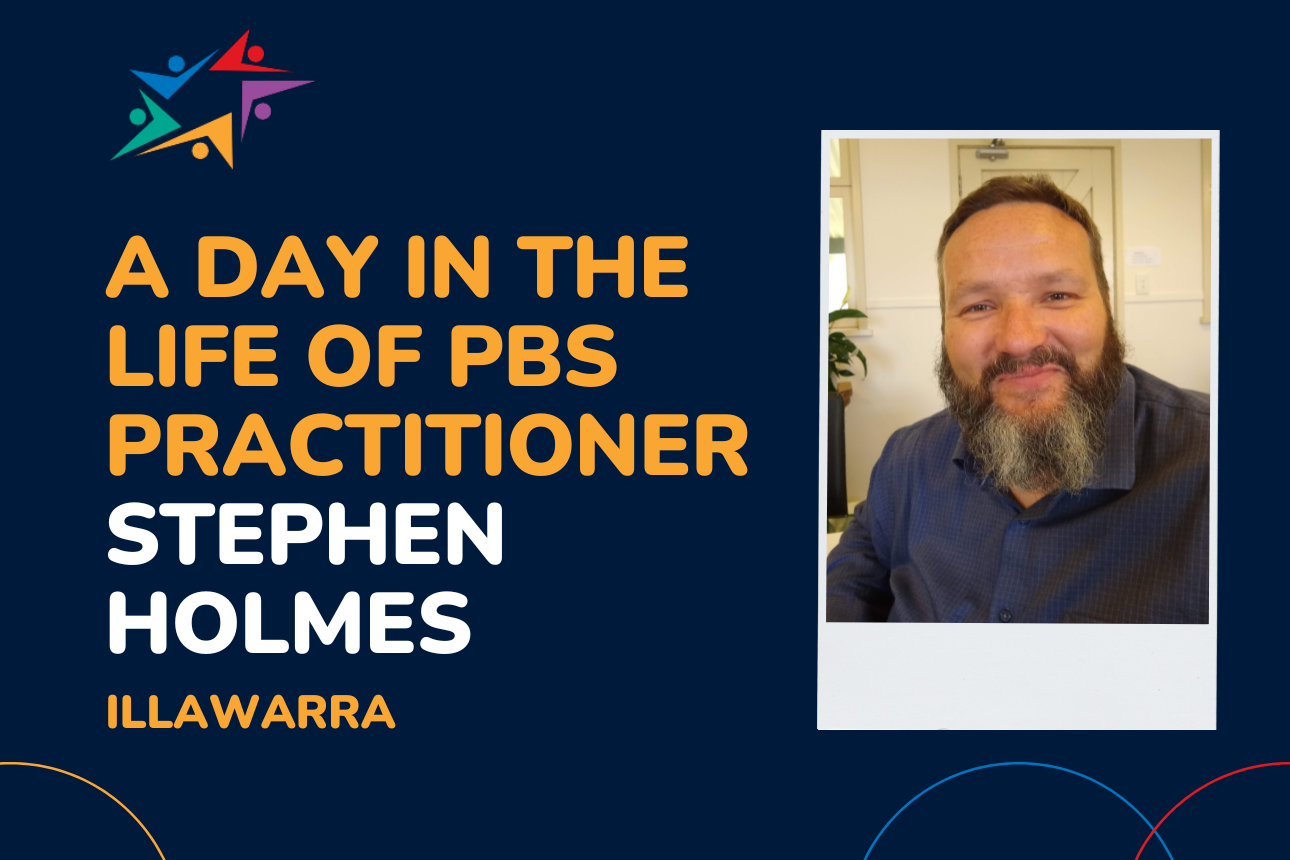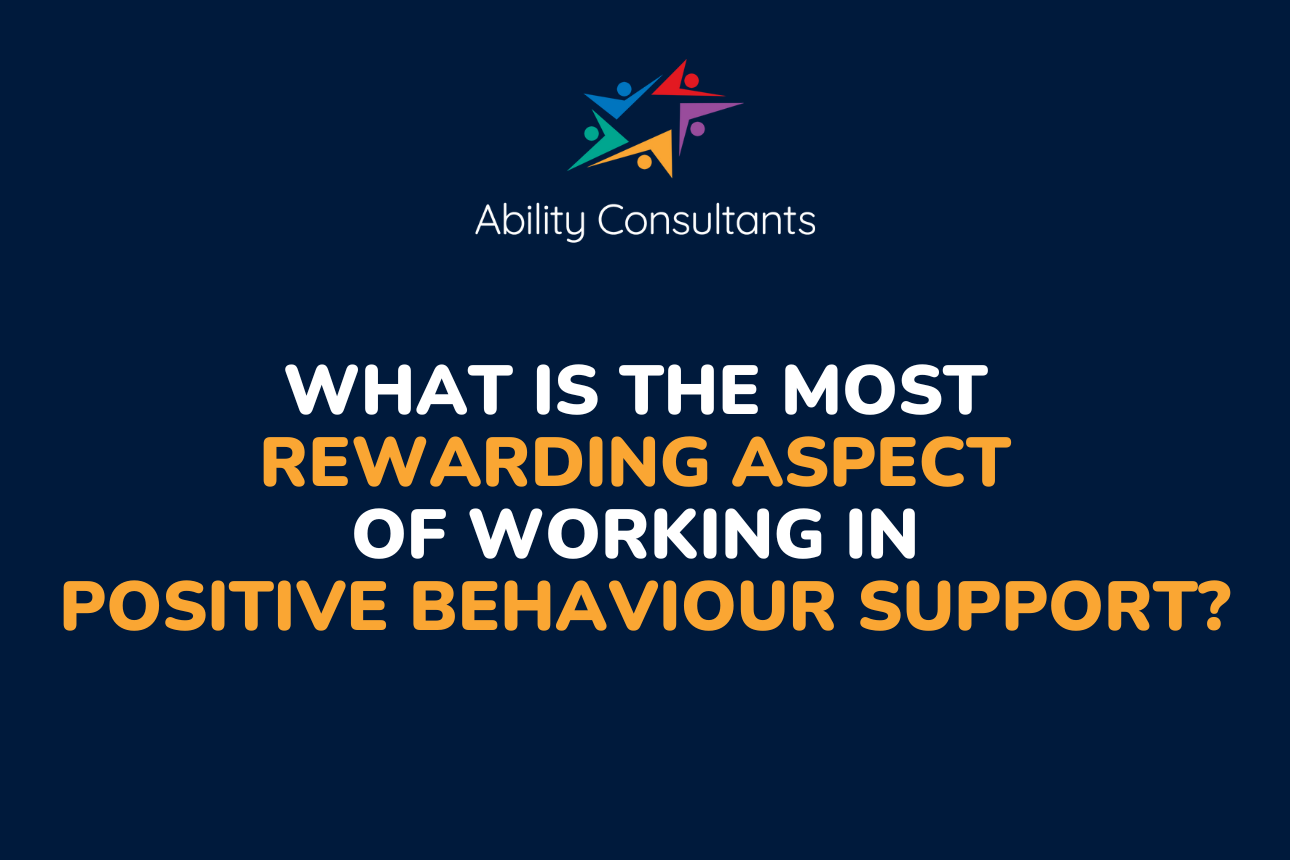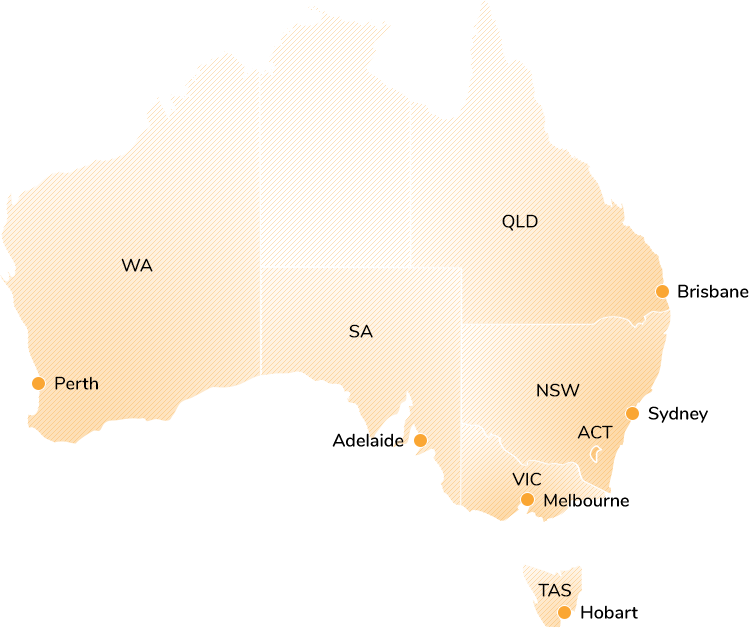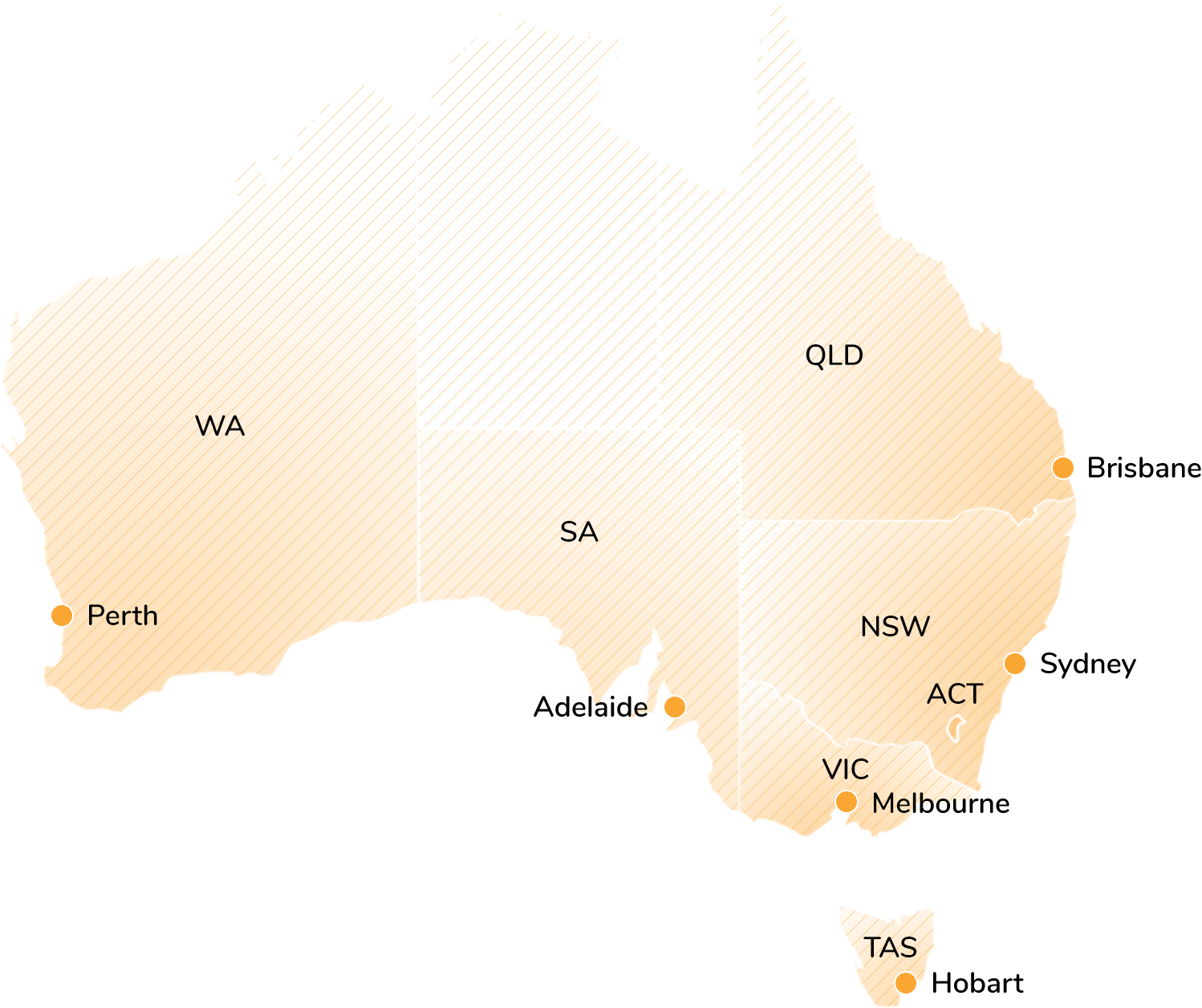Step into Stephen's shoes for a day in the life of a Behaviour Support Practitioner

It’s a joy to introduce Stephen Holmes, who is an Ability Consultants Senior Behaviour Support Practitioner in Illawarra, NSW. Stephen is a Team Leader, which means he supports, mentors and supervises a small group of behaviour support practitioners in addition to working with his clients.
Team Leaders meet weekly with each individual they mentor. The focus is on sharing ongoing learning and experience with their mentees. This mentoring culture:
- Makes services even better for our clients
- Grows practitioner skills
- Supports practitioner wellbeing
- Engages and rewards team leaders in a deep way
- Promotes proficient practitioners towards leadership and nurturing new pracs
- Embeds ongoing learning and development at the core of our work
- Allows PBS services to become more plentiful and easy to access in Australia. (That’s our mission. Back to Stephen now).
Stephen has a Masters of Criminology from The University of Sydney and a Bachelor of Arts from the University of Wollongong. He embodies a remarkable blend of knowledge and passion. He has extensive experience in the disability sector and an unwavering commitment to empowering individuals to lead their most fulfilling lives.

Meet Stephen Holmes, Behaviour Support Practitioner and Team Leader in Illawarra
Stephen, tell us about you.
Well… I am 46, married to Gabriella, Dad to Giorgi. I am a musician, a christian, a lapsed skateboarder and a builder and rider of motorcycles, in no particular order.
What path led you to your role as Behaviour Support Practitioner?
My Mum worked at a ‘special school’ from when I was 8, and in my teens I started helping out student travel training and supervising work experience (I probably owed her money from buying records and guitars).
I studied sociology and theology before working for years in various disability support roles and eventually the NSW department of disabilities. That’s where I started to learn Behaviour Support; functional assessment, reactive strategies, planning people’s time and skill building to reach their idea of a good life. This was all before we really had Behaviour Support Practitioners, so when the NDIS started up it seemed the right kind of work for me to do.
Can you tell us about your approach to supporting your clients?
Engage — Understand — Activate: I’m pretty simple in my assessment and active in my ‘doing-with’ work; kicking a footy teaches reciprocity better than any book, and enjoying coffee at a coffee shop with a client demonstrates to staff how to reward with company better than any powerpoint presentation. I often talk about curiosity and empathy as the main values that get me out of bed and into the work.

What is the most rewarding aspect of working in Positive Behaviour Support?
I like helping people — I also like helping people help people. Perhaps I don’t so much think about it as a reward, but more of a value. If you apply your curiosity and empathy to someone’s life or situation, generally speaking you’ll learn something cool, or get to enjoy their success or gain something of lasting value.
It’s kinda hi-brow, but there is a latin phrase I think about a lot, “labor ipse voluptas” — literally ‘the work is the reward’.
You work as a practising Behaviour Support Practitioner and also as a Team Leader. What do you do as a Team Leader?
In the most basic terms, I help people who help people. I take what I’ve learnt over years of mistakes and mis-steps and experiences, add it to my formal understanding of the systems and supports around our clients, and try to add value.
Usually, that means helping practitioners choose and be allocated clients, assess their needs and who’s important in their life, understand their behaviour in their context, and put together a plan that can improve their quality of life.
I read their written work, meet weekly with them, support them to articulate what they’ve observed and hone their insight into their clients needs. A lot of it is about building practitioner confidence, their ‘I can do this’ belief. I also try to make sure they get paid and stay sane.
How have you developed through your role as a Team Leader?
I love the assumption in that question — that I have developed in at least one way. Truthfully and perhaps unhelpfully I’m genuinely not sure. I like it more, I feel more comfortable in being available and a resource for others, I enjoy that ‘coaching’ part of it. I’ve seen the people I help lead develop into really safe hands: intuitively good practitioners with good work habits and strong personal values. That’s my payoff I guess.

A day in a life of a Team Leader in Positive Behaviour Support
8:00am Take my daughter to school / train station. Check emails and respond to any changes for the day — often writing down those thoughts/ideas that came to me at night or in the shower. Make (another) cup of coffee.
9:00am Usually my first appointment or big task of the day — today it was a 1:1 session with another TL/practitioner: pretty even split of process/systems issues, client issues and progress, and supporting her practitioners and/or mine with their work.
10:00am Another appointment or task — usually client-related (I like to chop and change throughout the day to stay fresh). Get stuck trying to “figure out” the function of a behaviour from insufficient data and observation > get frustrated.
11:00am Might take a break and do something creative or tinker in the shed (today I restrung my Rickenbacker 12 string to play with 6 strings) — particularly useful if I’m stuck trying to understand or plan something. Lunch.
1:00pm Review a mentee’s behaviour support plan before it goes to the Restrictive Practice Inbox for advice — sometimes I suggest or correct, usually I ask a question about something that doesn’t seem clear to me, I always affirm the engagement and relationship the practitioner has developed.
2:00pm Afternoon Home Visit with a client who lives about 20 mins away — review a new draft of a reactive strategy with them, the staff on shift or carer/teacher. Often debrief things that have or haven’t worked since the last visit — lots of listening for understanding.
3:30pm Pick up my daughter from school.
4:00pm Reply to some emails. Plan tomorrow. Reschedule a home visit to be a service visit for a client in a day program. Re-read action items from a meeting I struggled to pay sufficient attention in. Start to think about what to cook for dinner and whether there is a clean school shirt for tomorrow…
About Ability Consultants
Ability Consultants is a Registered NDIS Provider supporting NDIS participants through easy access to Positive Behaviour Support. We support communities throughout NSW, QLD, Victoria, Tasmania, South Australia and Western Australia.
If you're looking for Positive Behaviour Support in the Illawarra region, please contact us to make a referral.







